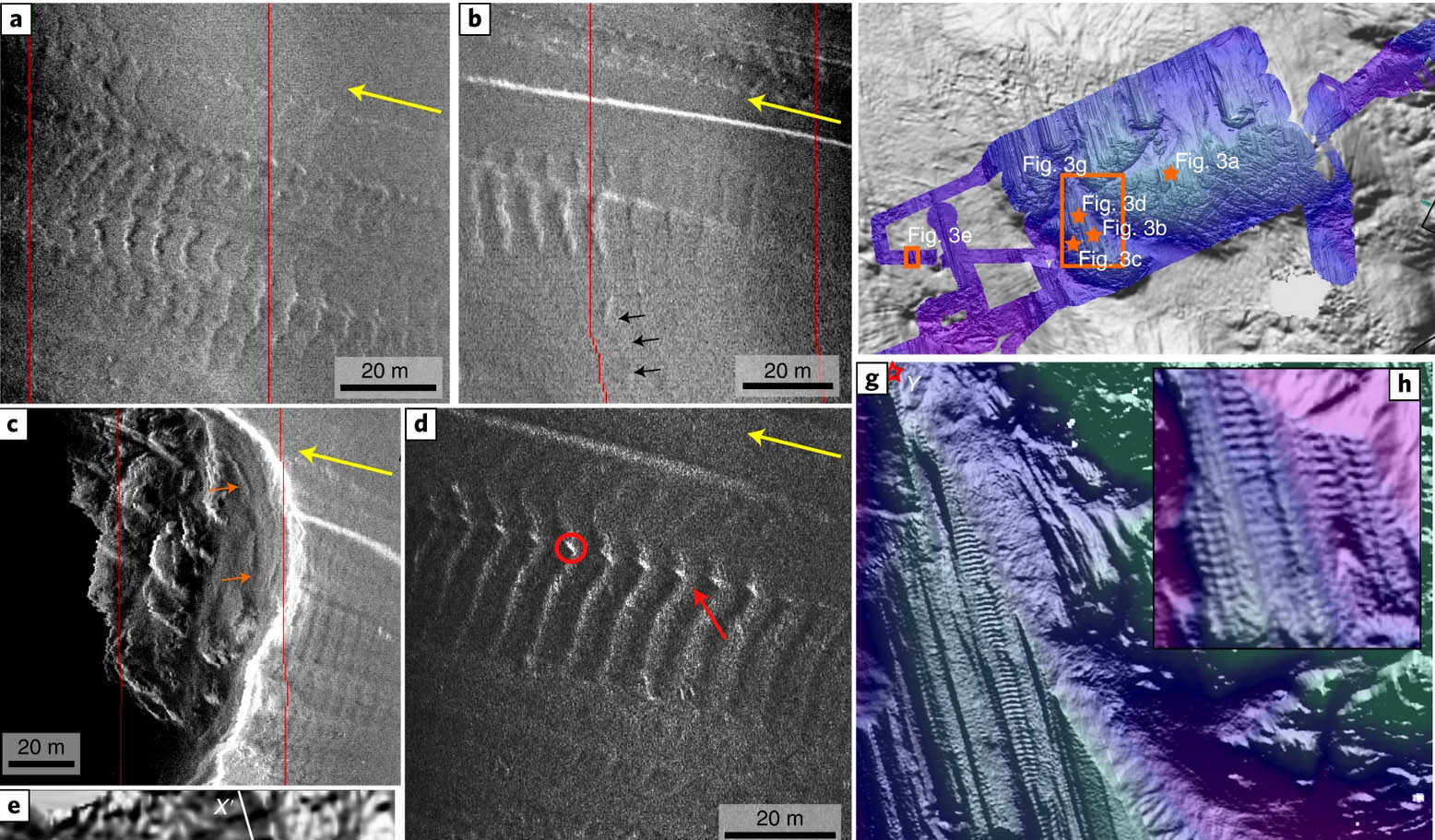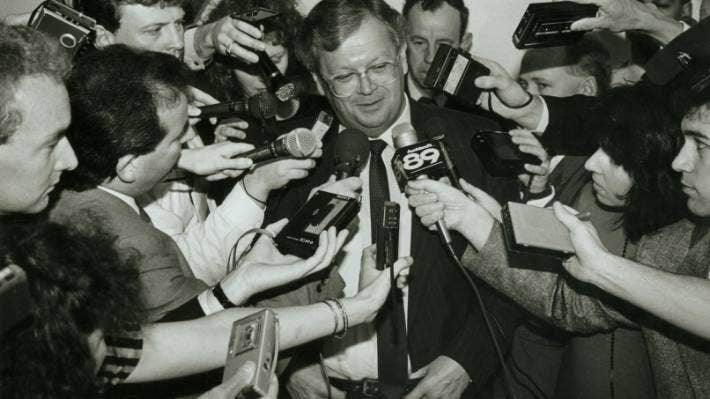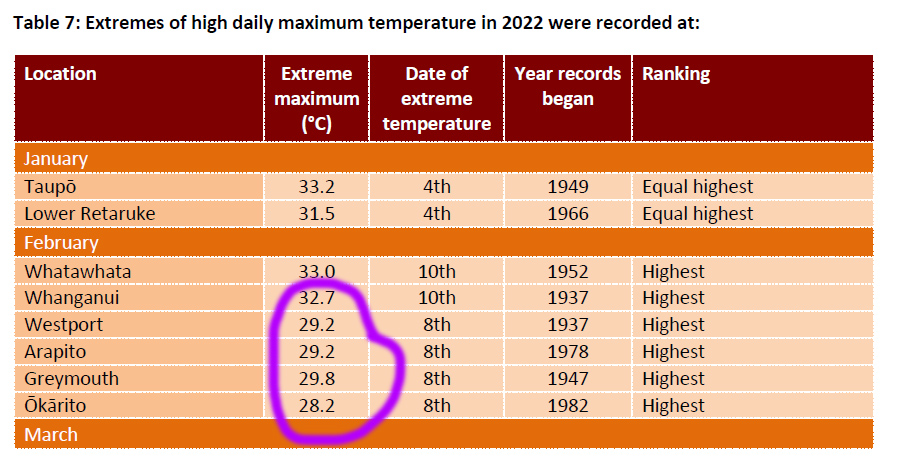
HOWARD’S WAY
He’s won a fourth term, faced down a revolt from backbenchers, and has historic control of the Senate. So what next for the Prime Minister? ALAN ANDERSON provides an inside account of the power struggles within the Liberal party, the outlook for succession, and Labor’s last best hope.
With the Opposition languishing in the polls, the new Senate under Coalition control and the issue of the Liberal leadership at least tem-porarily quiescent, one would imagine John Howard to be at the peak of his power. Yet the past few weeks have seen him locked in tense negotiations with four of his own backbenchers, culminating in a partial repudiation of the policy with which he is most closely associated in the public mind. As we eagerly anticipate the Government’s legislative agenda, how far will Howard really be able to push things in a fourth term?
The revolt led by backbencher Petro Georgiou against mandatory detention has been an unsettling experience for the Government. With big ticket items like industrial relations and Telstra on the agenda, together with smaller but equally controversial reforms like voluntary student unionism, Howard will not want policies that should form his legacy to be watered down by nervous backbenchers.
Howard’s response has been to portray the revolt as a strength rather than a weakness. His welcoming of fresh ideas from the backbench carried a disturbing touch of Chairman Mao’s exhortation to ‘let a hundred flowers bloom’, although one hopes his motivation is less sinister.
Certainly, Liberal MPs identify the party’s capacity to generate ideas as a key advantage over Labor. ‘We are winning because we are about ideas’, one South Australian Liberal MP told Investigate. ‘They are more interested in factional politics.’
This is more than rhetoric. Two new policy journals, The Party Room, edited by former federal director Andrew Robb MP and tax crusader Senator Mitch Fifield, and Looking Forward, edited by South Australian Liberal MP Dr Andrew Southcott, have sprung up in the last few months. Freed of the discipline of staring down the barrel of electoral oblivion, Coalition MPs have greeted Labor’s decline with an eagerness to conduct their own policy debates in public.
The Coalition is providing its own opposition, while an impotent Labor Party is relegated to the role of spectator. There is every reason to believe that this is not a passing phase. Labor was sidelined before Coalition control of the Senate; deprived of its upper house veto it can only become less relevant. Policy is in fashion this season, and there is no doubt that it is making the Liberal Party look like the natural party of government.
Yet while Howard’s portrayal of the Liberals as the ‘party of ideas’ may encompass calls for tax reform or school vouchers, it was a contrived explanation of his surrender to the mandatory detention rebels. Howard’s line has only passed media muster because the press gallery were so keen to see immigration policy watered down.
The days of a meek and compliant backbench are gone. ‘There are two ends of the spectrum’, another Minister explained. ‘On one hand you have people like Georgiou, who know that they’re never going to get a position on the front bench. What has he got to lose? He figures he might as well do what he believes.
‘At the other end of the spectrum you have young, ambitious backbenchers. If you’re in your thirties and on the backbench, you want to make a name for yourself. You see there’s a logjam on the front bench at the moment, and you don’t expect promotion any time soon. So you’re thinking long-term, beyond this Government’.
In other words, the Coalition’s policy debates are partly a symptom of its success. Howard has an abundance of talent in the Parliament, much of it quite experienced, but there are only so many ministries to go around.
The two major themes championed by the party’s backbench this year have been tax reform and softening of mandatory detention. They represent two different models of backbench activism, at least one of which poses a direct challenge to Howard’s authority.
The so-called tax ‘ginger group’, led by Fifield and Victorian Liberal MP Sophie Panopoulos, was careful to give credit to the Government for past tax cuts while lobbying for more. They portrayed their cause as consistent with the direction of government policy, and their form of contribution is doubtless what Howard has in mind when calling for debate. But to be fairto Petro Georgiou and his mandatory
detention rebels, consistency with government policy would not have been a credible claim for their group to make. Asked to comment on where the line is drawn between healthy debate and white-anting, one Liberal Senator saw the policy itself as the main distinction. ‘The difference is about whether you are agitating to advance Liberal values, or to overturn them; whether you’re trying to get us to go forward or to reverse’.
Yet there is a distinction of process as well as substance. Sophie Panopolous invited controversy when labelling Georgiou’s group ‘political terrorists’, yet there is no question that their campaign was conducted using the threat of private member’s Bills and an embarrassing split in Government ranks. If not terrorism, it was at least blackmail, and it worked.
Media commentators, seeking to excuse Howard’s capitulation on a policy they detest, suggest that it sprang from his belief that ‘disunity is death’. But if disunity is death, has Howard not encouraged it?
The Coalition party room was solidly behind Howard on this issue. Had he wanted to stand firm, there is no question that Georgiou and his three colleagues would have been isolated and defeated.
Instead, Howard spent nine hours negotiating with the group, delivering substantial concessions that undermine the mandatory detention regime for any asylum-seeker accompanied by his family. To extend the Panopoulos analogy, Howard broke the rules and negotiated with terrorists.
 One Victorian Liberal backbencher sees the rationale for Howard’s move as being specific to the issue. ‘The Palmer Inquiry was going to criticise the [Immigration] Department and recommend reforms. Howard was just moving first, so that when the report came out he would already have fixed the problems’.
One Victorian Liberal backbencher sees the rationale for Howard’s move as being specific to the issue. ‘The Palmer Inquiry was going to criticise the [Immigration] Department and recommend reforms. Howard was just moving first, so that when the report came out he would already have fixed the problems’.
Another explanation is that Howard was driven by memories of the dissipation of Malcolm Fraser’s authority in the face of regular defections. Yet the broader precedent has been set. ‘It will certainly encourage others to think they can get away with breaking ranks’, according to the Victorian. The incident has cast doubt over whether Howard be able to rein in the excesses of this phenomenon.
Of course, the one force that could reverse this trend is the federal Labor Party. Were it not for the absence of effective opposition from the benches opposite, Coalition parliamentarians might be more circumspect in airing internal policy debates than they have been in recent months.
What are the chances of a Labor revival bolstering discipline in the Coalition ranks? The prospect of a Labor leadership change, unthinkable before the Budget, is starting to look like a real possibility.
Returning to Beazley seemed a safe option at the time, but the Labor caucus must be wondering whether they have made their third mistake in a row.
Yet Coalition MPs see Beazley more as a symptom than a cause of the Labor disease. For one thing, a change in leadership will not alter the high ‘hack factor’ that is so apparent from a perusal of Labor CVs, or the resultant intellectual vacuum.
‘It’s about personnel’, was the Minister’s explanation of Labor’s woes, but it was not just a reference to the leadership. ‘Labor’s benches are full of trade union reps and former staffers. None of them have had any real world experience, and they’re not representative of the community. Our party room looks more like Australia’.
‘They just don’t have any ideas’, adds the South Australian MP. ‘They seem to be getting all their policy from one or two sources: tax policy from one think-tank conference; health policy from Catholic health groups. It’s because their MPs are basically just union and party hacks. They aren’t coming up with anything themselves’.
Equally damaging is the fact that Labor continues to break the primary rule of politics: look after your base.
This is perhaps Howard’s most important political legacy. Since 1996, ‘Howard’s battlers’ have continued to upset the traditional political balance. Won over by Howard’s rejection of the culturally elitist Keating agenda, a few battlers went home to Labor over the GST in 1998, before being cemented back into the Coalition’s corner by the border protection debate in 2001.
In 2004, the focus returned to domestic issues, with a traditional class warfare campaign under Labor’s pie-eating Aussie bloke, Mark Latham. Yet in spite of scare campaigns on health, a polarising debate over private schooling and a barrage of self-serving stories about Latham’s Green Valley upbringing, the battlers voted Liberal in greater numbers than ever. This, together with the abject failure of Labor’s anti-Costello campaign, suggests that Howard’s battlers have become the Coalition’s battlers, increasingly wedded to its aspirational economic message as well as its culturally conservative one.
Is this reversible? Beazley’s ham-fisted efforts to block Costello’s tax cuts suggest that Labor still believes it can regain its traditional support base. Yet it is questionable whether Labor can ever win back its socially conservative core demographic until it finds the courage to confront its latte set of academics, teachers and lawyers and reconcile the conflict between what Beazley’s father memorably called ‘the cream of the working class’ and ‘the dregs of the middle class’. Increasingly, Labor looks like it is just sitting back and praying for a recession.
This may well be Labor’s only chance. Asked to explain the Coalition’s electoral dominance, three Liberal parliamentarians independently came up with the same phrase: ‘strong economic management’.
 It is interesting that Costello’s mantra is now echoed even by MPs more traditionally associated with Howard, given that it relegates Howard’s personal appeal to being a subsidiary cause of success. Yet it is a tribute to the Howard-Costello partnership that the Government has acquired a confident identity beyond the personality of its leader, in stark contrast to the personality cults of state Labor administrations.
It is interesting that Costello’s mantra is now echoed even by MPs more traditionally associated with Howard, given that it relegates Howard’s personal appeal to being a subsidiary cause of success. Yet it is a tribute to the Howard-Costello partnership that the Government has acquired a confident identity beyond the personality of its leader, in stark contrast to the personality cults of state Labor administrations.
This ongoing dominance leaves Howard with great responsibilities, and with the challenge of managing a restless backbench. He is the trustee of years of intellectual and political effort by liberals and conservatives, which have finally delivered the opportunity for serious reform. There are two tasks by which Howard will be judged.
The first task is to maintain the reform momentum. Kevin Andrews’ ambitious industrial relations reforms exceed the meagre expectations created by his ambiguous post-election pronouncements. If implemented in their current form, they will be a fitting capstone to Howard’s career-long struggle to liberate Australia from its antiquated IR system.
Peter Costello’s last budget also exceeded expectations, although purists will continue to call for a more radical flattening of the income tax system. Liberals have good reason to be satisfied with their Government’s fourth term performance thus far.
But Howard has yet to negotiate passage of his industrial relations laws, which have offended federalists and face a possible defection by Nationals Senator Barnaby Joyce. The sale of Telstra also faces hurdles, with some Nationals likely to complain so long as one farmer has mobile reception problems when trying to call the sheep in his back paddock.
On a smaller scale, there are also rumblings of dissent over voluntary student unionism, raising the fear that the policy will be watered down into insignificance as it was under Jeff Kennett in Victoria.
Securing passage of these reforms will be a test of Howard’s authority, not to mention his negotiating skills. This once-in-a-generation opportunity must not be squandered. Howard has acquired a large reserve of political capital over the past ten years. This is the time to spend it.
 Yet there will be a temptation to do the opposite. Fear of a possible leadership battle in the coming year could cause Howard to question whether he should keep his powder dry; whether a ‘steady as she goes’ approach and the appeasement of dissenters is a more prudent course to maintain poll numbers and party room support in the short term. It can only be hoped that the surrender on mandatory detention was not a sign of such an approach.
Yet there will be a temptation to do the opposite. Fear of a possible leadership battle in the coming year could cause Howard to question whether he should keep his powder dry; whether a ‘steady as she goes’ approach and the appeasement of dissenters is a more prudent course to maintain poll numbers and party room support in the short term. It can only be hoped that the surrender on mandatory detention was not a sign of such an approach.
This brings us to Howard’s second great task. Even he must appreciate that the end of his career is approaching. If Howard fights the 2007 election, it will be as a 69-year-old. And even if he fights and wins, what about 2010 and 2013? No one believes Howard will be around for those elections.
One senior Liberal told Investigate, ‘Our newer MPs are looking at the long term. They know the best chance they have of a long career is if the leadership transition is timed right and goes smoothly’.
The Liberal Party’s future does not end with Howard’s career; nor does Australia’s. Howard owes it to his supporters to devise a credible succession plan that bequeaths to his successor a legacy that does not die with Howard’s leadership. His aim should not be one more victory, but many, through a long period of conservative dominance of which he is merely the founder. At the recent Liberal Federal Council meeting, blatant promotion of Alexander Downer, a strong contender for the Deputy’s position under Costello, suggested that succession planning is very much on Howard’s mind.
Thus we have arrived at a crossroads in Howard’s career, which will determine whether he is a politician or a statesman. Howard the survivor can spend his final years in office ducking and weaving to dodge the inevitable final blow. But he is enough of a student of history to know that Australian Prime Ministers are remembered more by their leaving of office than by their holding of it.
Accordingly, Howard should use the authority that four election successes have conferred upon him to advance the Liberals’ ideological cause, applying the bold template of his industrial relations reforms to other areas and creating a policy agenda that will extend beyond his reign. If Howard departs office voluntarily, with his Prime Ministership not a finished book but the opening chapters of a work in progress, he will have earned an exalted place beside Menzies in the Liberal pantheon.







